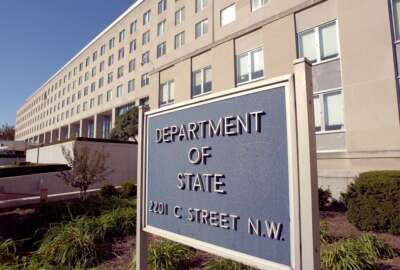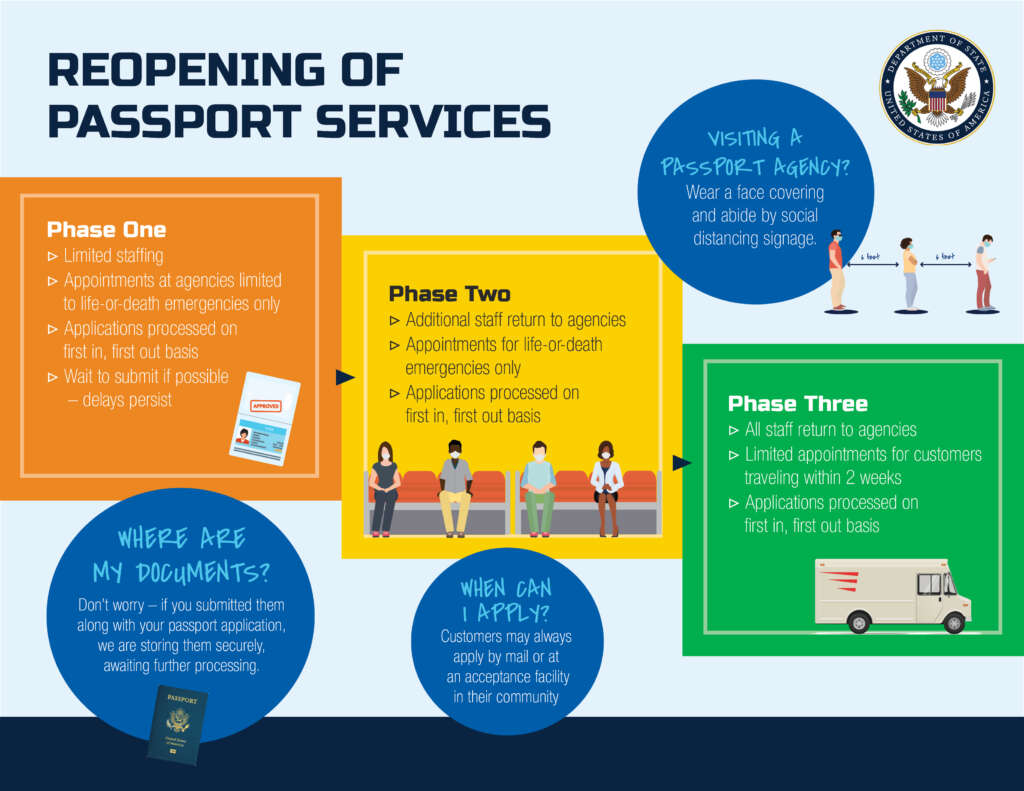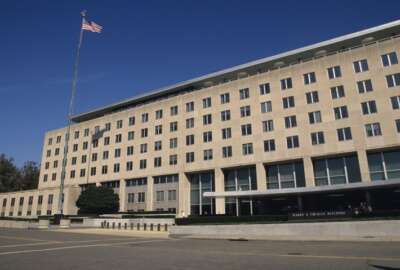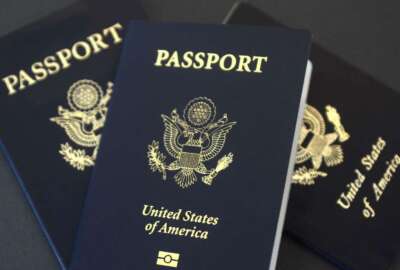
State Dept reopens 11 passport services sites, confronts million-case backlog
The State Department has reopened several passport service offices across the country as part of its Phase One reopening plan and is scaling up its workforce to...
The State Department has reopened several passport service offices across the country as part of its Phase One reopening plan, and is scaling up its workforce to deal with a backlog of more than a million applications that have piled up since March.
Assistant Secretary of State for Consular Affairs Carl Risch told reporters Friday that nearly half of the passport services workforce has already returned to work. The State Department has also deployed more than 150 employees from other parts of the agency to help deal with the backlog.
Risch said the current backlog of 1.7 million applications amounts to a “slight increase” compared to what the agency would handle in a month. The bureau, he added, can scale up operations to process several hundred thousand applications per week.
“Assuming current trends hold, this capacity will only continue to grow,” Risch said. “Although this nationwide disruption in business as usual is unprecedented, our dedication to issuing Americans passports as quickly and securely as possible is not. Our workforces professional, capable and more than up to the task of getting back to normal in short order.”
The State Department typically processes 18 million passports a year and handles about 200,000 applications in an average week.
The following passport centers have reopened under Phase One:
- Arkansas Passport Center
- Buffalo, New York Passport Agency
- Chicago Passport Agency
- Colorado Passport Agency
- Connecticut Passport Agency
- Detroit Passport Agency
- Minneapolis Passport Agency
- National Passport Center (Portsmouth, N.H.)
- New Orleans Passport Center
- New York Passport Agency
- Philadelphia Passport Agency
Risch said mission-critical management teams began reporting to the office full-time June 3. On June 8, all passport services personnel not considered high-risk were told to report to work June 11.
Employees considered high-risk under the health guidelines set by the Centers for Disease Control and Prevention will remain on weather and safety leave.
The decision to reopen passport offices comes a week after Sen. James Lankford (R-Okla.) led six other senators in a letter expressing concern to Secretary of State Mike Pompeo over the state of the agency’s passport application backlog.
“The federal government is not in a state of government shutdown. Employees have not been furloughed and there has been no lapse in appropriations from Congress for the Department of State,” the senators wrote. “In fact, Congress has passed several supplemental appropriations packages to equip the department to respond to various challenges posed by this pandemic.”
However, the senators also wrote that federal employees shouldn’t return to work until it is safe to do so, and urged the department to pursue “all remote working options” to ensure maximum productivity during the pandemic.
While officials with the National Federation of Federal Employees said the union once explored the possibility of remote work for passport specialists, they said those ultimately fell apart over privacy concerns.
Risch said passport specialists must handle sensitive documents such as birth and naturalization certificates during their workday, as well as print and ship passport books and cards from secure facilities.
“Unfortunately, a lot of aspects to the production of something like a passport is just not conducive with telework,” he said.

The State Department has enough personal protective equipment for passport specialists returning to work, and Risch said the agency is in a “much better position” to weather a second wave of the pandemic.
The agency is also drafting a contingency plan to prepare for a possible second wave.
“We hope to still develop a strategy, that we continue to work on, looking at what could happen in the future if we see a need to start removing employees from the workplace again,” he said. “But we hope that won’t have to happen, and we’re looking at ways to be more resilient if we are faced with these challenges in the future.”’
During under Phase One reopening, Risch said the State Department will continue to prioritize customers who need a passport in the next 72 hours for a “life-or-death emergency.”
Customers must still make an appointment online, wear cloth face coverings in all common areas and practice social distancing.
As facilities reopen, Risch said passport specialists will process applications on a “first-in, first-out” approach. As the bureau chips away at its backlog, customers submitting a “routine” passport application should expect to wait a minimum of eight weeks.
Americans overseas can expect similar delays, but Risch said the agency can still provide “emergency services” if requested. The State Department has brought more than 100,000 overseas Americans back to the United States during the pandemic.
In an email sent Monday to Special Issuance Agency employees, Assistant Director Sandra LaBarge said State Department now considers passport issuance an “essential function of the mission,” and told employees their positions were now mission-critical. The guidance doesn’t apply to contractors.
The Special Issuance Agency issues diplomatic passports and processes visas for personnel traveling on behalf of the federal government.
In the email obtained by Federal News Network, LaBarge said SIA continues to keep safety “our top priority” as the facility reopens.
“As we move to increased presence in the agencies, all passport agencies will continue to adhere to strict sanitation and safety guidelines,” she wrote.
SIA will only allow customers with life-or-death emergencies to enter public areas of the building, and will require them to wear face coverings.
The agency will also increase janitorial services, and will provide face coverings, hand sanitizer and cleaning materials to employees upon request.
Copyright © 2025 Federal News Network. All rights reserved. This website is not intended for users located within the European Economic Area.
Jory Heckman is a reporter at Federal News Network covering U.S. Postal Service, IRS, big data and technology issues.
Follow @jheckmanWFED
Related Stories





